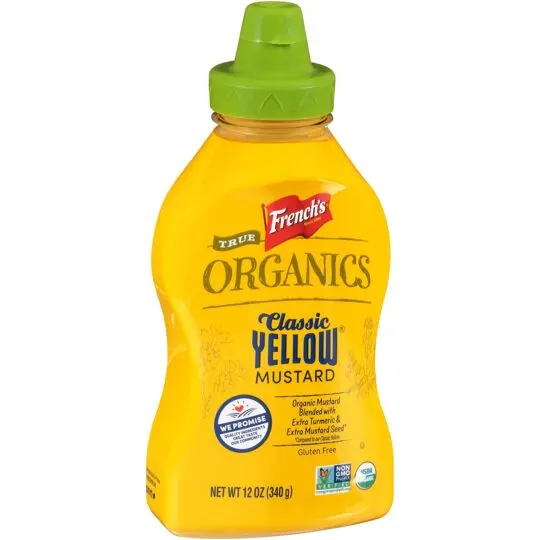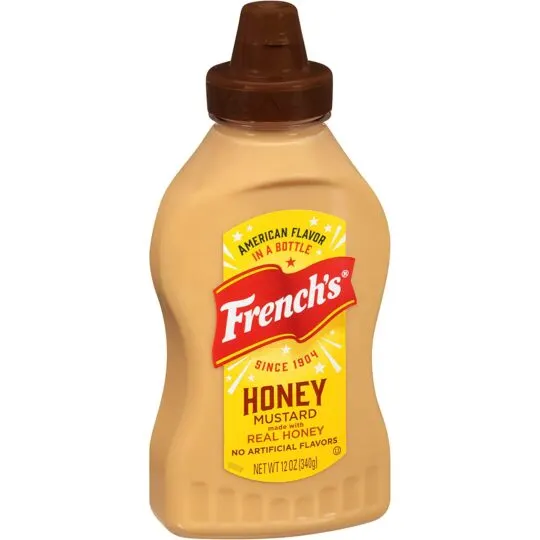We’ve come to appreciate the many ways of enjoying Dijon mustard. And our daily diets hardly go without it. It always finds a place in our dishes, whether a hearty soup or a delicious hotdog. And when a situation arises where we can’t use it, we may feel something essential is missing from our recipe.
Dijon mustard is undoubtedly a handy ingredient for numerous meals, but it can still be replaced. And here, we’ll talk about many substitutes that will offer that rich and earthy spiciness the condiment offers. And for those who don’t know how ideal Dijon mustard is, we’ll add a brief lowdown of what this interesting ingredient is all about.

Dijon Mustard- What is It?
Numerous varieties of mustard exist, but Dijon stands out distinctly for many reasons. First, it’s a special type, originated from France, and named after the town of Dijon, where it’s made. Unlike regular yellow mustard, made from yellow and white mustard seeds, Dijon mustard is gotten from black and brown mustard seeds.
Another factor that makes Dijon mustard unique is its vinegar content. Compared to most other varieties, it has less vinegar in its composition, resulting in a creamier consistency. Its mustard seed source also gives it a paler color than yellow mustard, making it spicier. And it’s sold in bottles or jars and doesn’t need to be shaken before use, as you get only its thick consistency and very little fluid content.
Dijon mustard also belongs to the group of mustard types considered as coarse. The seeds are grounded using a method that leaves most of it whole, giving a coarse texture and intense flavor.
Why Use Dijon Mustard?
Dijon mustard is arguably one of the few specialty varieties in the culinary world. Compared to yellow mustard, it contains either verjuice or a combination of white wine and vinegar. The former is derived from unripe grapes, crab apples, or other sour fruit and has a high acidic content. And this ingredient combines with the brown and black mustard seeds to give it a specialized flavor best described as hot and spicy, yet earthy and intense.
Dijon mustard offers its unique texture and deep spiciness to tons of recipes as the leftover whole seeds in the mix release more flavor when added to foods. It’s why the condiment is added to meat infusions and used in spicy vegetable dishes. It’s also a great way to add tanginess to bread dishes impart flavor to cooked dishes. And the blend of the hottest mustard seed varieties and tang of white wine and vinegar builds a flavor profile far more intense than the powdered source of yellow mustard.
You’ll find that Dijon plays a huge role in numerous cuisines worldwide and features a wide range of dishes. Some examples of these recipes are listed below;
- Hotdogs
- Burgers and sandwiches
- Curries
- Spicy green salad
- Stews
- Soups
- Sauces
- Flank steak
- Potato salad
- Honey Mustard chicken
- Pork chops
- Lamb’s legs
- Mayonnaise
- Glazed carrots
- Ham
- Pork roast
- Brisket
- Pretzels
- Quiche
- Dips
- Slaws
- Seafood dishes
- Scrambled eggs
- Broths
- Crusts
- Gratin
- Mac and cheese
- Casseroles
- Deviled eggs
- Roast chicken
- Pate
- Vinaigrette
- Glazes
- Spreads
- Frittata
- Galette
- Roasted potatoes
Dijon Mustard Substitutes
Dijon mustard is fondly referred to as the ‘King of Mustards’, but even the greatest can be replaced in some cases. Most times, we get accustomed to the complex flavor effects of Dijon mustard and feel lost when we discover our supply is exhausted. But you can still get the best of Dijon mustard if you know how to replace it. And these substitutes below are regarded as the best options to swap for Dijon mustard.
Yellow Mustard
Though Dijon is far superior to regular yellow mustard, it can still replace it in many recipes. Yellow mustard is made from powdered yellow mustard seeds and sometimes contains other spices like thyme, garlic, or ginger. But the mustard content will still offer your recipe a significant dose of spiciness.
Note, though, that yellow mustard is sweeter than Dijon. It also contains more vinegar, giving it more tartness and acidity. But it’s a versatile ingredient that works in many cases and can be swapped at equal amounts with Dijon mustard in most dishes.
Westbrae Natural Organic Stoneground Mustard
This substitute is the closest to Dijon mustard in terms of consistency, as it’s processed similarly. The seeds are roughly grounded such that whole seeds are left in the past, giving a more robust and earthy flavor than other mustard types. It’s also made from brown mustard seeds like Dijon, so you should expect a similar flavor and hotness.
But compared to Dijon, stone-ground mustard has more whole seeds, so the paste has milder hotness. But it’s a great swap in dressings and marinades and will give you a close flavor match to Dijon mustard. Stoneground mustard can also be substituted at a one-to-one ratio as Dijon mustard.
Honey Mustard
While it’s considered a sweeter variety, honey mustard still works as a fantastic Dijon mustard substitute. It’s creamier than Dijon but also packs a flavor and spicy punch, but its sweetness is due to the added honey in its mix. Honey mustard is excellent on meat like chicken, pork, and animal protein, as they excel with honey glazes. And it’s also an excellent addition to dips, marinades, wet rubs, salads, and vegetable dishes.
You can use equal amounts of honey mustard to replace Dijon in such recipes, but if you’ll deviate to other types, ensure the sweetness is welcome in the dish.
Frequently Asked Questions (FAQs)
What can I add to yellow mustard to make it more Dijon?
You can tweak your regular yellow mustard to taste close to Dijon mustard by adding a tablespoon of white wine vinegar. Or you can combine half tablespoons each of white wine and vinegar, then add it to your yellow mustard.
Are Dijon mustard and spicy mustard the same?
They’re not, although they both come from brown mustard seeds. But while spicy mustard is gotten from seeds soaked in vinegar, those for Dijon mustard are soaked in white wine or something similar. It makes Dijon mustard best for sauces and marinades, while spicy mustard excels in meat sandwiches.
Does Dijon mustard have horseradish in it?
No, it doesn’t. Dijon mustard is purely made from unfermented wine juice and ground mustard seeds, and its name comes from its parent French town of Dijon. But it does share a familiar boldness in heat to horseradish, mainly because it lingers.
Conclusion
The unique properties of Dijon mustard can’t be overemphasized, but it doesn’t mean you can’t do without it. The substitutes listed above can help when you need a quick fix or try something new. And with them, you can still enjoy the various benefits Dijon mustard has to offer, even when you don’t use it in your cooking.




